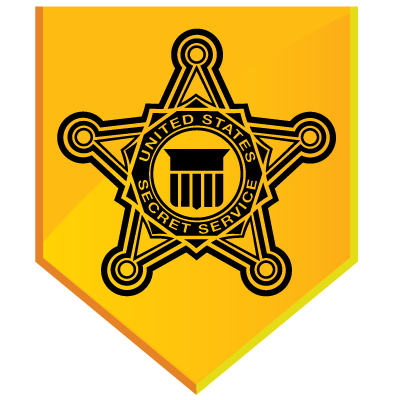(Washington, D.C.) – An indictment returned today in New York adds new charges of wire fraud conspiracy, wire fraud, conspiracy to possess unauthorized access devices,
access device fraud, aggravated identity theft, conspiracy to commit computer fraud, computer fraud and counts of interception of electronic communications to those already
returned in a high-profile cyber investigation by the United States Secret Service.
The 27-count indictment returned in Central Islip, N.Y., charges Albert Gonzalez of Miami with illegally accessing the computer systems of a national restaurant chain and
stealing credit and debit card numbers from that system. Today’s indictment supersedes a one-count complaint against Gonzalez unsealed earlier this week. The original
indictment, returned on March 12, 2008, and unsealed on Monday, May 12, charges Maksym Yastremskiy, of Kharkov, Ukraine, and Aleksandr Suvorov, of Sillamae,
Estonia, with the same criminal violations.
In September 2007, corporate officials with Dave & Busters, Inc. (D&B) notified the Secret Service of a network intrusion targeting payment terminals at 11 different D&B
restaurants located throughout the United States. The suspects were able to compromise customer credit card data that was subsequently resold for use in additional credit card
fraud schemes worldwide. An extensive investigation involving multiple U.S. Secret Service offices nationwide definitively linked the three suspects to the intrusion.
“This case demonstrates the global nature of cyber crime. With internet capabilities expanding rapidly around the globe, the reach and potential for criminal intrusion are
greater than ever,” said Secret Service Assistant Director Michael Stenger. “Cooperation among investigators throughout the Secret Service and our domestic and international
law enforcement partners, has led to these significant arrests. By combining our investigative resources, we can transcend borders and more effectively address evolving
criminal methods.”
The indictment alleges that in or about May 2007, Yastremskiy and Suvorov gained unauthorized access to D&B cash register terminals and installed at each restaurant a
"packet sniffer," a malicious piece of computer code designed by Gonzalez to capture communications between two or more computer systems on a single network. The packet
sniffer was configured to capture “Track 2” data as it moved from the restaurant's point-of-sale server through the computer system at the company's corporate headquarters to
the data processor's computer system. At one restaurant location, the packet sniffer captured data for approximately 5,000 credit and debit cards, eventually causing losses of
at least $600,000 to the financial institutions that issued the credit and debit cards.
Acting on information provided by the U.S. Secret Service, Turkish officials arrested Yastremskiy in Turkey in July 2007. He remains in jail on potential violations of Turkish
law. A formal request for extradition of Yastremskiy to the United States has been made to the Turkish government. At the request of the U.S. Secret Service, Suvorov was
arrested in March 2008 by German officials while visiting that country. He remains in jail in Germany, pending German action on a formal U.S. extradition request. U.S. Secret
Service officials arrested Gonzalez in Miami in May 2008. Gonzalez was previously arrested by the Secret Service in 2003 for access device fraud.
The United States Secret Service was originally founded in 1865 for the purpose of suppressing the counterfeiting of U. S. currency. Over the years it has grown into one of the
premier law enforcement organizations charged with investigating financial crimes. The Secret Service has taken a lead role in the developing area of cyber crime, establishing
working partnerships in both the law enforcement and business communities to address such issues as protection of critical infrastructure, internet intrusions and associated fraud.
• Financial Investigations: Under DHS, the Secret Service made nearly 29,000 criminal arrests for counterfeiting, cyber investigations and other financial crimes,
98% of which resulted in convictions, and seized more than $295 million in counterfeit currency. The Secret Service investigated and closed financial crimes
cases where actual loss amounted to $3.7 billion and prevented a potential loss of more than $12 billion.
• Cyber Crime: The Secret Service continues to be the leading federal law enforcement agency pursuing cyber criminals throughout the world. Successful
investigations include Operation Firewall (2004) and Operation Rolling Stone (2006), as well as multiple individual arrests around the world that have prevented
millions in fraud loss. The Service also continues to work with leading industry partners, sharing intelligence with the financial community regarding cyber crime
trends as well as providing technical briefings which highlight current vulnerabilities in the electronic payment systems.
• Electronic Crimes Task Forces: The United States Secret Service has doubled its Electronic Crimes Task Forces (ECTF) a successful public-private partnership
aimed at fighting high-tech computer-based crimes. The common focus of the ECTF program, which now includes 24 nation-wide task forces, is to prevent,
detect, mitigate and aggressively investigate cyber attacks on the nation’s financial and critical infrastructures.
• Public and Law Enforcement Education: From March 2003 to present the Secret Service provided over 34,000 hours education to the public regarding
financial crime, counterfeiting and identity theft. More than 120,000 copies of several different instructional CDs were distributed by the Secret Service to help
front-line local, state and other federal officers understand and investigate high tech and identity crimes. Because most these crimes fall under the jurisdiction of the
Secret Service, the agency has taken an aggressive stance and continues to be a leading agency for the investigation and prosecution of such criminal activity.

